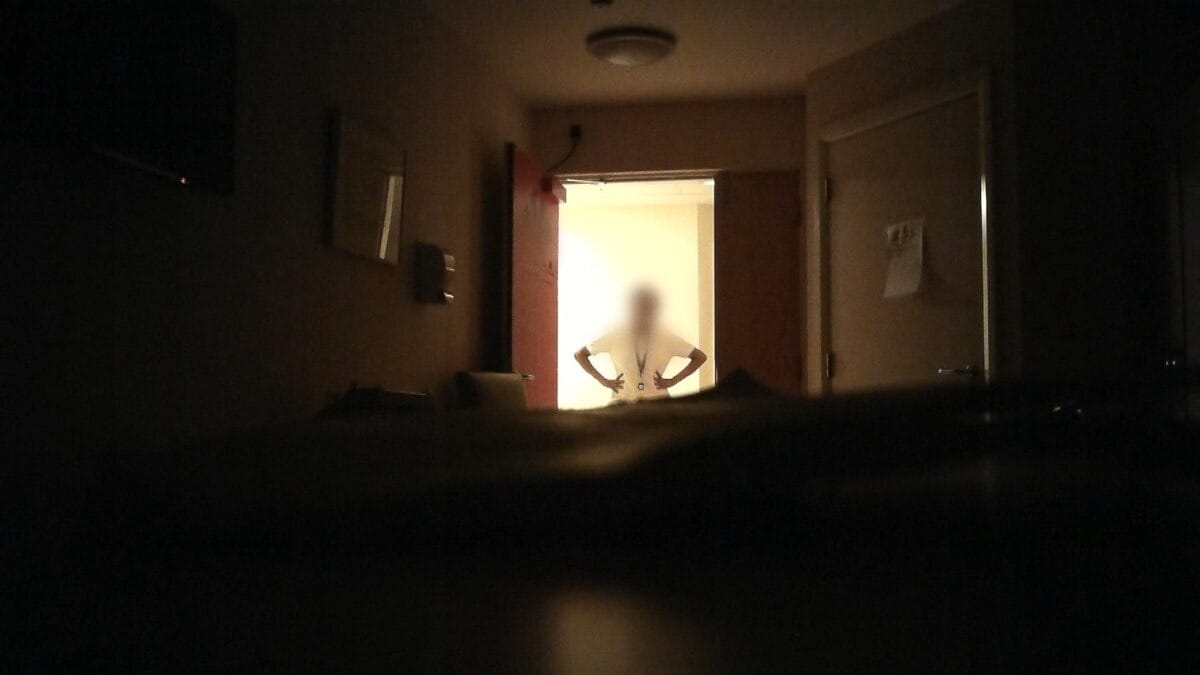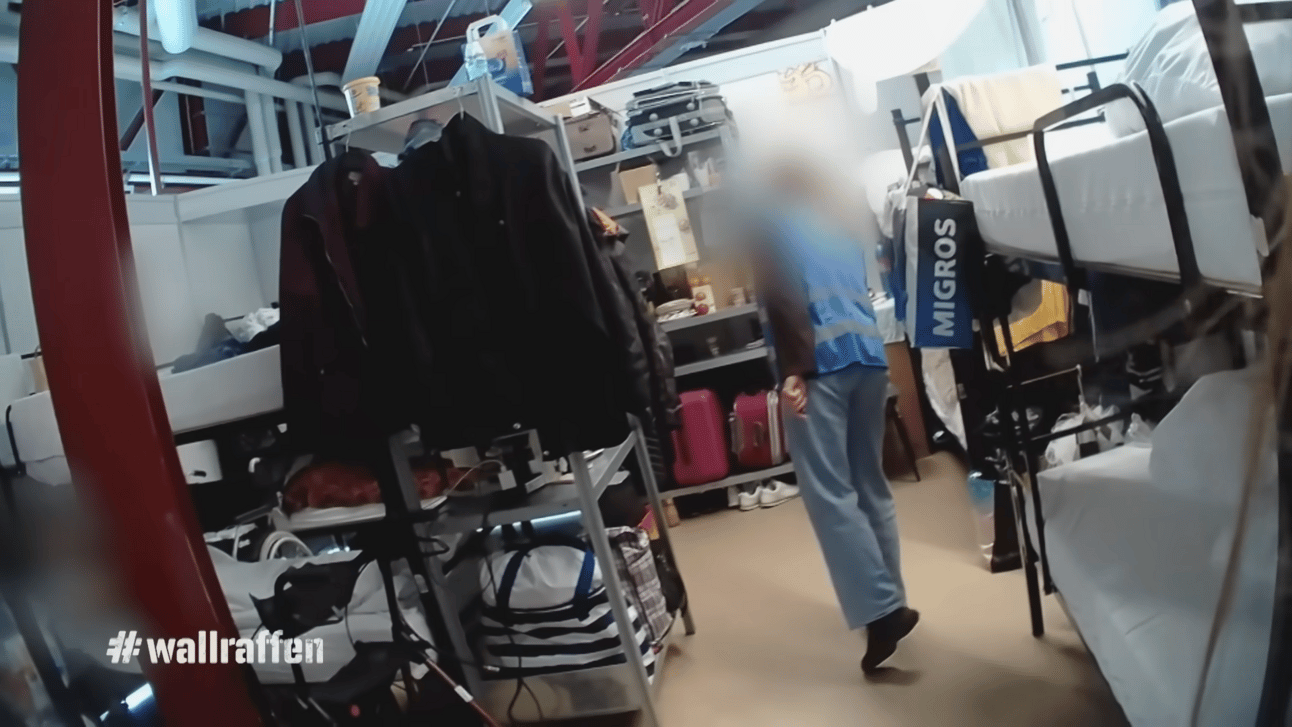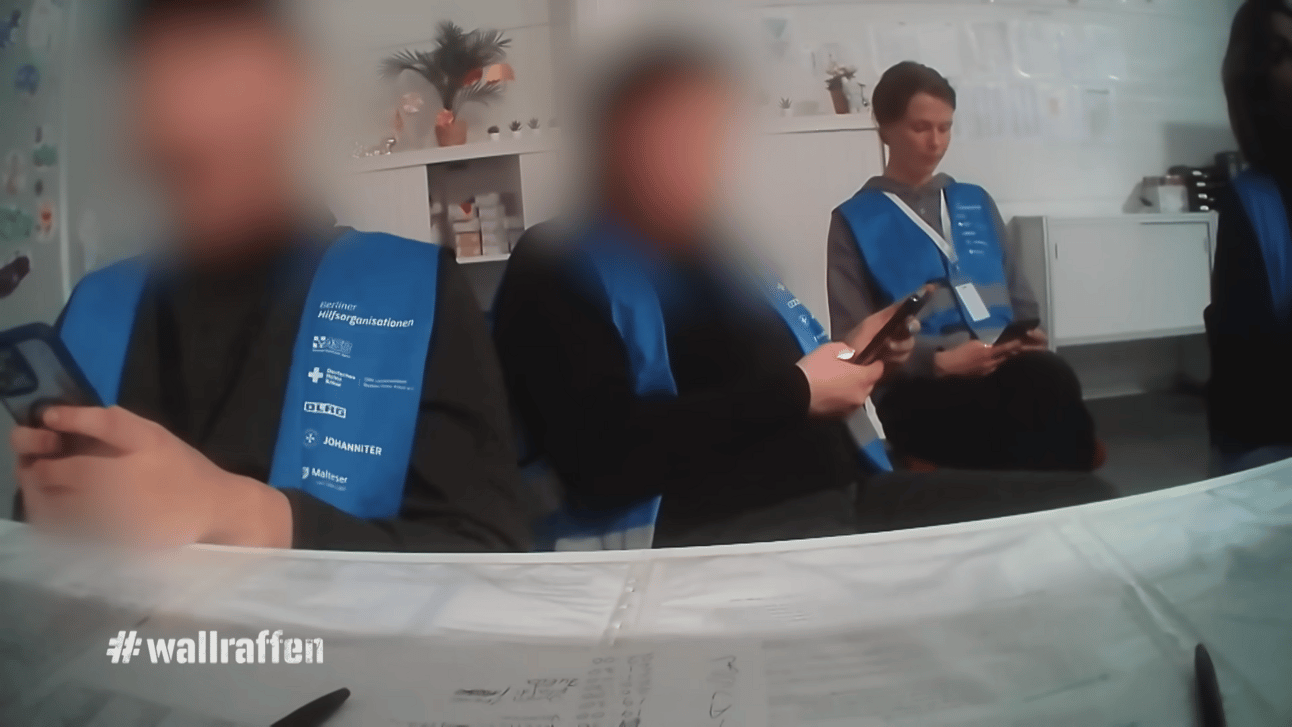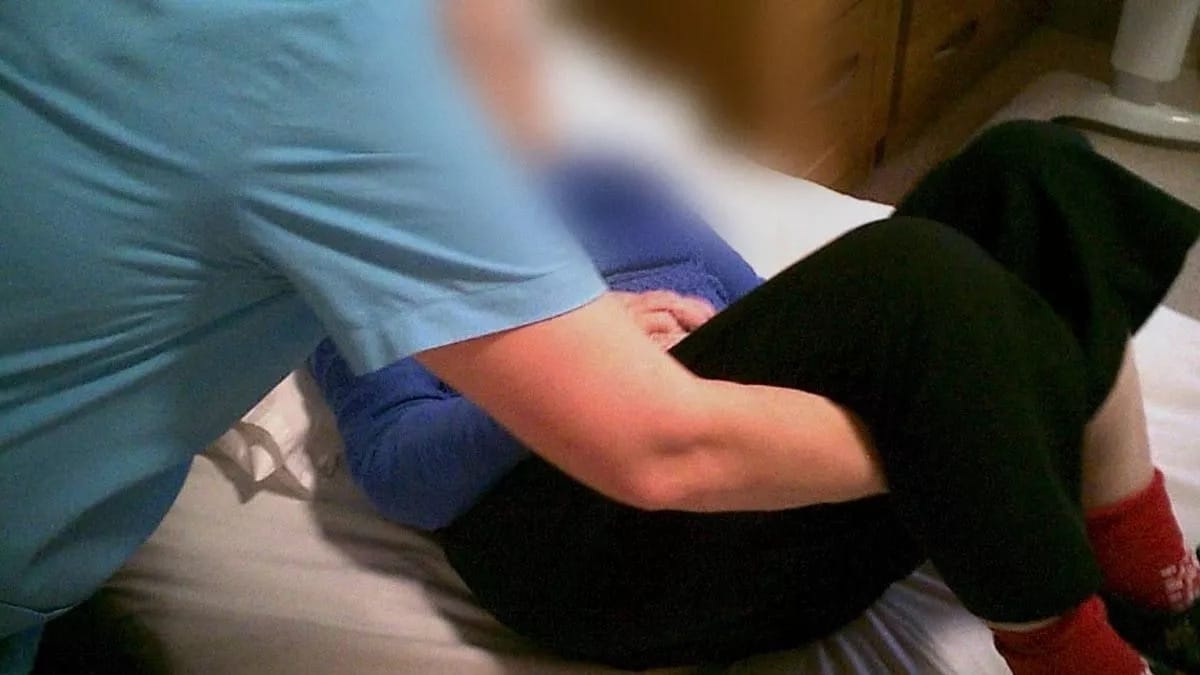- Debrief - The undercover dispatch
- Posts
- The Last Month Undercover: Journalism That Hits Where It Hurts Most
The Last Month Undercover: Journalism That Hits Where It Hurts Most
Three undercover investigations that reveal what happens when public services stop serving those who need them most.

Some stories dig into the cracks to pry them open and expose the weaknesses of a system for everyone to see.
In this issue, we've gathered three of the most significant undercover investigations published in the past month. They come from three different countries: Germany, Ireland, and the United Kingdom. They all share a common thread, revealing what happens when services, public or privatized, fail those who need them most. Refugees crammed into cells with no privacy. Gambling addicts abandoned to their fate. Elderly people ignored in nursing homes. These stories share another key aspect: they wouldn't have surfaced without undercover journalism.
With this issue, we launch a new monthly feature. Every first Friday of the month, we’ll highlight the best undercover journalism published worldwide during the previous thirty days. We'll cover all formats: audio, video, written. Our goal is to keep an eye on the problems plaguing societies at home and abroad, but also to provide inspiration and creative ideas on how to tell these stories, and perhaps even encourage investigating similar issues in your own country.
These are stories that often fly under the radar but deserve to be known. They're not easy to find, so if you come across an undercover investigation that strikes you, anywhere and on any topic, please let us know. From today, you can do so by filling out this form:
Every suggestion could become part of the next Debrief.
This issue was written by Luigi and edited by Sacha.
In This Issue of Debrief:
Where Do Germany’s Millions for Refugees Really Go?
Germany’s largest refugee camp doesn’t even look like a camp. Neon lights, clean corridors, an entrance guarded by uniformed personnel, ID badges, schedules, and regulations. It’s located in the former Berlin-Tegel airport, now turned into a city within a city for those fleeing wars and persecution. Approximately three thousand people live there daily, crammed into hastily built living modules divided by two-meter-high walls without ceilings, separated only by curtains. Each “cell” contains bunk beds, cots, and thin mattresses, often accommodating up to fourteen people at a time, in spaces with no privacy whatsoever.
Officially, this center is an “emergency accommodation,” intended to cope with the massive influx of Ukrainian refugees in 2022. In reality, it has become permanent. Berlin continues to spend nearly €1.2 million per day, more than €400 per person, to keep thousands of migrants in a structure that doesn't even meet minimal standards for humane accommodation. It is the most expensive place a refugee could live in Germany but also one of the most dehumanizing, a true paradox.

One of the "cells" where refugees are crammed together | RTL – Team Wallraff
This investigation by Team Wallraff, founded by legendary German journalist Günter Wallraff and broadcast on RTL Germany (a private German television network), started with a simple question: where does all that money go? To answer this, investigative journalist Lisa Plank went undercover as a worker within the camp, hired by the Arbeiter-Samariter-Bund (Workers' Samaritan Federation), one of the organizations managing the site. She worked closely with refugees, collected testimonies, observed staff shifts, and recorded inconsistencies. She found that many employees like her spent hours aimlessly wandering around with minimal tasks, filling checklists but performing no real duties. It's a system that generates an enormous circulation of public money while migrants, people who have suffered, fleeing wars or severe civil rights restrictions, are left abandoned to their fate.

Idle staff members, among them investigative journalist Lisa Plank | RTL – Team Wallraff
But the most troubling revelations came from the contracts. German journalists obtained confidential documents showing how the companies involved in managing the facility, including Messe Berlin and the German Red Cross, received fixed commissions on expenses. It doesn't matter if refugees sleep in ceiling-less cells, if there are no activities for children, or if sanitary conditions are critical. What matters is maintaining the mechanism that justifies the continuous allocation of public funds.
Despite this investigation, however, the Berlin Senate has announced the facility will remain open at least until 2031. In short, the emergency has become, and will remain, the system.
You can watch an excerpt here, or if you live in Germany (or can connect via a VPN), you can find the full investigation here.
"Don’t stop addicted gamblers."
In theory, it's straightforward. If you have gambling problems in the United Kingdom, you can force yourself to stop by self-excluding. You fill out a form, provide your personal information and a photo, and from that point on, no gambling venue should allow you entry, protecting your well-being. It's a voluntary safeguard against compulsion, designed to shield vulnerable individuals from themselves and an industry that profits from their fragility. But in practice, this system rarely works.
This was demonstrated by a BBC audio investigation aired in June. Greg Clark, a journalist for the audio documentary program File on 4, posed as a pathological gambler. He formally requested self-exclusion from all gambling venues within 40 km of Portsmouth. He provided his photo, personal details, and consented to be banned from all gambling establishments. Then, wearing a hidden camera and carrying some cash, he visited those same venues. The result: in thirteen out of fourteen cases, he was able to enter and gamble without any issues. No one stopped him, no alarm went off, and nobody checked his identity.

Journalist Greg Clark undercover as a gambling addict | BBC
In one venue, less than a hundred meters from another that had turned him away, an employee even offered him snacks and helped him understand how the machines worked. The audio investigation also gathered testimonies from other gamblers. In one case, a staff member at a gaming venue showed a female player how to remove the bank block she had set up herself to prevent spending money on gambling, because ultimately, the goal is to keep the gambler gambling.
The investigation goes beyond a single experiment. It documents systemic complicity in an industry presenting itself as regulated but in reality has no genuine interest in making its control mechanisms effective. Two of the venues visited, for example, were not even registered with the self-exclusion program, despite being legally required to do so.
The British self-exclusion system, known as MOSES (“Multi-Operator Self-Exclusion Scheme”), relies on operators sharing data about excluded gamblers and conducting timely checks. But the investigation reveals that this network is full of holes. Even when a venue recognizes a self-excluded gambler, no automatic notification alerts other venues nearby. Often, these establishments lack concrete tools to carry out effective controls.
Reactions came swiftly. The Gambling Commission described the findings as “deeply concerning” and promised investigations and extraordinary measures. Meanwhile, this story highlights that such companies have every interest in maintaining gamblers' addictions.
You can listen to the audio investigation directly on the BBC website.
Undercover in Irish Nursing Homes
You don't need violence to cause harm, sometimes indifference is enough. It's enough to not be there when someone calls you, to ignore cries for help, to treat a vulnerable person like an object to move or a body to manage. This is precisely what an investigation by RTÉ Investigates, the investigative journalism program of Ireland's public broadcaster, revealed, pulling back the curtain on the practices inside some of the country's most well-known private nursing homes.
It began with multiple reports: concerned family members, former employees, and whispers of systemic neglect at Emeis Ireland (formerly Orpea, previously implicated in similar scandals in France and Germany). RTÉ decided to look deeper. Two healthcare-trained researchers were hired undercover at two nursing homes managed by Emeis, one in Portlaoise and the other in Dublin. They spent weeks documenting, with hidden cameras, the true practices of these facilities, practices that occur when visits end and families leave.

A scene from the investigation | RTÉ
The findings were devastating. Patients left alone for hours, elderly residents pleading for assistance to use the bathroom receiving no response. Staff was severely understaffed. Often a single worker managed entire wards, even with severely dependent residents. There was no time to use mechanical lifts required by regulations. Elderly individuals were lifted awkwardly and dangerously, risking physical and psychological harm.
It wasn't just a staffing issue; basic resources were lacking: clean towels, pads, gloves, hygienic wipes, and even recreational activities meant to provide social interaction and stimulation. Entire days passed in inertia, with televisions on and corridors empty. The elderly waited, but nobody came.
The most striking case is that of the Guy family, who only discovered, after the documentary aired, that their father, Audeon, had been subjected to improper care. In the footage, a nurse is seen roughly grabbing him to move him, ignoring all protocols, while the elderly man cries for help, begging for someone to take care of him.
After the broadcast, reactions were immediate. The company Emeis issued a statement saying it was “deeply distressed” and apologized for what had happened. The Health Information and Quality Authority (HIQA), the regulatory body for nursing homes in Ireland, launched new emergency inspections and admitted that some of the facilities involved were already under observation.

One of the patients in the facility run by Emeis | RTÉ
Ireland’s Minister of State for Housing with responsibility for older people, Kieran O'Donnell, called the images “unacceptable” and urgently summoned HIQA management. The government promised a full regulatory overhaul, starting with tighter controls and a possible reform of the entire care model. The Alzheimer Society of Ireland also spoke out, describing the lack of respect for human dignity shown in the footage as “horrific.”
The documentary did what every undercover investigation should do: spark a conversation about people’s lived realities. It showed what happens when care becomes an industry, when compassion is replaced by profit, and when those who cannot speak are left voiceless.
To tell this story, someone had to go inside.
You can watch the full investigation here.
Who Undercover Journalism Serves
These three stories, about migration, addiction, and care, share a common thread: they put marginalized individuals back at the center.
When Nellie Bly pretended to suffer from a psychiatric disorder in 1887 to expose from the inside the reality of mental asylums, she didn’t do it to sensationalize suffering, but to demonstrate that some places can only truly be understood by entering them. Her act paved the way for many journalists around the world today.
Starting now, every month we'll highlight what undercover journalists have been investigating and how they did it.
If you've recently come across an undercover investigation that impressed you or think it deserves attention, please let us know by filling out the form here:
Until the next Debrief,
Sacha and Luigi
If you've come across an undercover investigation you think we should feature, share it with us here:
👉 https://forms.gle/1JbqMBJUfoRU9MBp7
If you have suggestions, questions, tips (or insults), drop us a line at:
👉 [email protected]
If you enjoyed this newsletter, pass it along to your friends using this link:
👉 https://debrief-newsletter.beehiiv.com/
Follow us on Instagram, occasionally we'll upload content different from the newsletter:
👉 https://www.instagram.com/debrief_undercover/
We've also launched a podcast featuring interviews with the authors of memorable undercover investigations:
👉 https://open.spotify.com/show
And if that's still not enough, join our Telegram channel, where we can keep the conversation going:
👉 https://t.me/debrief_undercover
Reply